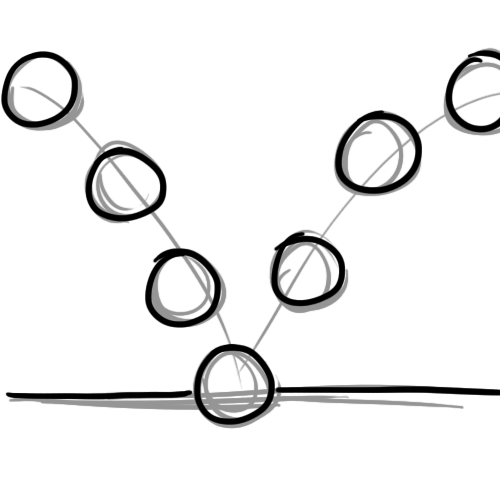In this article series I will cover top-level factors that search engines use in determining where a website will rank for given keyword(s), and how a small business can use these factors to propel their website ahead of the competition, driving quality traffic through organic placement.
On Page Search Engine Ranking Factors for Small Business Websites
This first article will cover what is known as On Page factors, meaning what can be done on the website itself. We will cover the following:
- Content
- Keyword Research
- Keyword Use
- Engaging Visitors
- Updated Content
- Page Titles
- Meta Descriptions
- Heading Tags
- Indexing
- Page/Site Speed
- URL’s
Website Content
As I’ve written about before, website content is king when it comes to attaining rankings on the search engine results page (SERP). I can not stress enough how important it is to have a good amount of Quality Content on each page of your website. The old days of having a website with the same old, stale set-up of: Home, About Us, Services, Gallery and Contact Us are dead and gone. The web and how people use it has changed dramatically, and to keep up with this change, the search engines have changed their game too. Having quality content, with a purpose, will help any small business get to the first page of the search engine results.
Keyword Research for Small Business
What keywords do you want to show up for? How competitive is it to get to the first page for those keywords? Do you know what keywords will get your phone to ring or get people walking into your store? These are some of the questions that need to be answered when determining what keywords you will want to work on.
For many of my customers the first keywords they say are typically the hardest ones to achieve rankings for. For example, and automobile mechanic in Portland, Oregon may want to achieve rankings for “Auto Repair Portland”, or something similar. I typically try for rankings for less competitive, but higher converting keywords. This has proven to be very successful for many small businesses. So for an auto repair shop, I might suggest building a page directly targeting people who need to have their timing belt replaced, with quality content that explains why this auto repair shop are experts in replacing timing belts. The auto repair shop gets to the first page of the search engine for a keyword such as “timing belt replacement”, the people that land on that page can see that this shop knows their stuff about timing belts, and thus coverts more of these prospects into customers. This process can be duplicated over and over again for different services such as: transmission flushes, emissions repair, brake repair and so on. A good quality, robust website will eventually get rankings for even the most difficult keywords with this tactic. The question I ask many of my customers is “would you rather be on the first page for 150 keywords or 10?
Keyword research is a tough job that requires researching trends, search volume, and competitiveness. Hiring a qualified SEO Company can take much of the guessing out of this task.
Keyword use in your website
Do you use keywords and phrases in your website content you hope to be found for? If you’re trying to get rankings for the keyword “timing belt replacement” do you use that keyword string and related keyword strings in your content? Do you know what words Google considers the same? For example right now Google recognizes that the words “replacement” and “repair” are very similar, so serves results that are very similar for the searches of “timing belt replacement” and “timing belt repair”.
Understanding keyword similarities and using variances of these keywords on your websites text will help you achieve ranks for these desired keywords.
Engaging your website visitors
Do you measure “bounce rate” by page on your website? One of Google’s engineers explains bounce rate as “I came, I puked, I left”. High bounce rates point to one of two problems with your website.
Serve the information your visitors want. Is there something that is distracting your visitors and making them want to leave? What keywords is that page being found for? If a website visitor thinks they are mislead when visiting your site, they will simply back out and look elsewhere. So if you have a webpage about “timing belt replacement” make sure your information on that topic above the fold, where the visitor will see it quickly. Making a visitor hunt for what they are looking for does little more than inflate your bounce rate.
Design and layout above the fold. Is your page to busy? Is your page confusing? Page layout and message can start a prospect down your sales funnel, or can kill it. Using heat maps of web pages can help web designers fix high bounce rate issues regarding layout and design of a web page. Google Analytics also offers “In-Page Analytics” to help show click tracking on a page.
Updated Website Content
How often do you update the content on your website? Is the content new and about topics that will get your website traffic? One of the most important things that can get search engines coming back again and again to your website is creating new content. I typically recommend two new pages or posts per month for each of the small businesses I work with. Having Quality Content and constantly Updated Content builds a firm foundation for SEO success.
How to make your website easy to index
The search engines want to serve websites that are easy for normal people to use. If your website is not easy for a search engine spider to use, they will assume it will be hard for a normal human to use also. Making it easy for a search engine to find ALL of your websites pages, using alt-tags on every picture, limited or non-use of flash and using an Xml Site Map will help the search engines index your website.
Conversely, disabled back buttons, pop-ups, hidden pages, doorway pages, certain types of redirects, heavy use of flash, text in picture format and others make it hard for a search engine to index and will hurt your rankings.
Page and website speed
This is defiantly one where you get what you ask for. Your website speed and page load speed are factors that the search engines grade heavily on. Pages that are loaded with lots of pictures, big header pictures, picture sliders with to many pictures, self hosted videos and flash laden websites all slow load speed of a website. Search engines want to serve up websites that are quick and give their customers the information they seek quickly, and a slow website is counter-productive to that.
Cheap, inexpensive web hosting can hurt the speed of your website. Google offers a free on-line website speed tester to see how fast your website is. The tool also offers advice such as: browser caching, image optimization and others to help fix your speed issues.
URL Keyword Tagging
There is a little controversy these days over url’s with keywords in them getting better rankings. There has been a lot of speculation over the last year that Google would be dropping this from their ranking algorithms, but since it hasn’t been announced, I will cover it here. URL Keyword Tagging is the practice of buying highly sought after url’s with keywords or keyword strings in the url. For example, a carpet cleaning company in Portland might be interested in buying the url PortlandCarpetCleaning.com to try and target people searching that phrase. The hope here is that the search engines will give added weight to that website since the url contains those keywords.
I typically don’t recommend spending the money that many of these highly sought after url’s cost for two reasons.
- Since there is speculation that Google will be dropping this from their ranking algorithm, the SEO boost for the time being versus the cost of the url may not bring a good return on investment.
- Keyword URL Tagging can be done by adding the desired keywords into the page slug, giving almost, if not the exact same effect. I have used this on many of my customer websites, with excellent SEO results.
However, there are studies out there that point to these types of URL’s getting more SEO traffic, so ultimately I leave this decision to the business owner after weighing their options.
Next article in this series will be: Website Ranking Factors for Small Business – Off Page SEO




